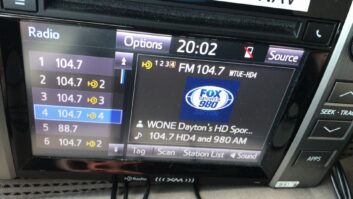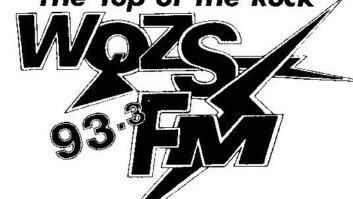In the Sept. 1 issue, Radio World published a selection of comments filed with the FCC about the NRSC report on Ibiquity Digital Corp.’s AM in-band, on-channel digital audio broadcasting system. Here is another sampling:
“Susquehanna recognizes that AM IBOC is not without its shortcomings. Potential does exist for additional interference to the analog service of adjacent channel stations but the benefits of IBOC far outweigh the additional interference that may be received by some AM stations. The problem with AM is that it is not a pristine service. …
“Today, the commission is faced with the decision of authorizing a fundamental change in the AM broadcasting that may cause additional interference to some existing stations in areas on the fringe of their coverage. Susquehanna believes that this potential interference is minimal when compared to the quality and durability gains that will occur in every station’s main listening and marketing area. …
“The NRSC evaluation reports on both the AM IBOC and the FM IBOC called attention to the potential of adjacent channel interference and recognized that neither system was perfect. Tradeoffs occur but the gains of the system far outweigh the losses. AM allocations and propagation are far more complex than FM, making it more difficult to fully ascertain the extent of this adjacent channel interference, particularly during night hours.
“Susquehanna recognizes that no broadcast service is optimum when authorized as a day-only service. Nevertheless, there is presently no information available that can determine the true extent of the potential adjacent channel interference during night operation. Future testing and allocation studies may provide the needed information for the commission to consider some form of night service operation.” …
“With the information known today, it would appear that the commission has two choices: authorize a day only service for AM or no IBOC service for AM. Susquehanna believes that without IBOC, the AM band has little hope for the future.
“Susquehanna understands that without night service, AM IBOC, standing alone, may have little chance of success but we also believe that neither AM IBOC nor FM IBOC will be an overnight success. Ibiquity has often stated that their AM and FM technology are interlaced in such a manner that all receiver chip sets will provide for the reception of both AM and FM IBOC. It is possible that many AM stations will decide to hold off on implementing IBOC until FM stations have paved the way and created demand for IBOC receivers.”
Charles T. Morgan SVP, Susquehanna Radio Corp. York, Pa.
“We agree and appreciate the concept of digital AM, and in fact would encourage it under other conditions. However, our chief reason for rejecting the current proposal is the extraordinary costs and financial burdens that will be place(ed) on the smaller, independent AM radio stations in the U.S.
“We reject the idea of the FCC sanctioning the payments of royalties to the developers of the IBOC technology. … iBiguity (sic) is owned by several of the major radio consolidators which have been allowed to consolidate nearly 50 percent of the radio stations in the U.S. since enactment of the Telecom Act of 1996. Is it the FCC’s desire to give these few companies which control 50 percent of all commercial radio in the U.S. complete control over the digital broadcasting signals in the U.S. and hold all stations hostage by requiring a royalty payment on a government-mandated broadcast standard?”
The AM Broadcasters Association Inc. Central City, Ky.
“We suggest that any implementation of AM IBOC hybrid be postponed until full analysis of skywave propagation interference, especially to clear-channel stations, be closely analyzed and unanswered questions can be answered.
“We suggest that Ibiquity include in the subjective measurements, human opinion while listening to the degradation of the analog audio at 5 kHz vs. 10 kHz and observed on the same scale as have been made regarding ‘improvements’ to the AM IBOC hybrid digital sound quality. …
“We suggest that more portable receivers be tested and Ibiquity compile a list of the receivers that have adjacent channel interference problems or inadequate filtering. This is imperative because the AM broadcast bandwidth will be modified; whereas the FM broadcast bandwidth remains unchanged. Many portable receivers have bandwidths that exceed 6.5 kHz and will be adversely affected by IBOC hybrid signal.
“While it is true that many receiver manufacturers use very narrow filters, (as narrow as 3 kHz), all receivers should not be characterized as performing this poorly. Reducing the broadcast bandwidth to 5 kHz will, in effect, ‘force’ every receiver to have this poor analog bandwidth and all receiver manufacturers will be forced to install narrow bandwidth analog filters.”
Robert C. Crane President, C. Crane Company, Inc. Fortuna, Calif.
“WGUL-FM, Inc. is the licensee of a number of stations, both AM and FM, in Florida. It has long been a supporter of IBOC, and has even offered its station WGUL-AM as a test site at its own expense. However, WGUL-FM, Inc. fears that the future of IBOC digital is now being controlled by those who have no desire to see the AM band (and particularly smaller stations) succeed. …
“It should be troubling to all broadcasters of good faith that Ibiquity is guided by America’s largest broadcasters, some of whom think it perfectly appropriate to own revenue shares of 95 percent in markets like Sarasota-Bradenton, Fla., and whose bulk of ownership come from FM stations and 50 kW AMs. Ibiquity is an FM-concentrated company at its core with no real incentive to pull AM stations into parity with FMs.”
Carl J. Marcocci Chairman/CEO, The Gulf AM-FM Group WGUL-FM, Inc., Licensee Tampa, Fla.











